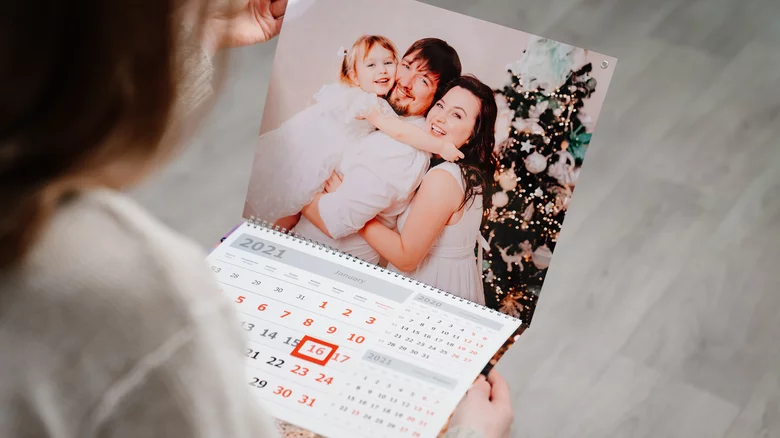One of the more uncomfortable and touchy topics to think about in relationships. Unfortunately, the act of cheating and the betrayal of getting cheated on are both far more common than you might guess. According to Newsweek, one-fifth of Americans have admitted to cheating on their partners at least once in the past. 1,500 adults over the age of 18 were polled, and although the majority of responses were positive ones, the amount of cheaters who were willing to admit what they did is still alarming.
If you’ve already made the mistake of cheating on your partner, there’s only one thing you can do in order to move forward without being stuck with a guilty conscience forever. You’ll have to come clean and tell the truth in its entirety. Coming up with the smartest possible action plan when admitting to cheating is your best bet if you want to save your relationship.
“You can tell the brutal truth without being brutal yourself”.

Your partner still deserves brutal honesty from you at the very least. In fact, you need to be willing to come clean with every single detail if you have any interest in saving your relationship. If you keep your infidelity a secret for far too long, it will cause your relationship to start deteriorating.
Even though it’s uncomfortable, you owe it to your partner to tell them the truth about what you did including all of the nitty-gritty details. It’s best to let your partner know about what you’ve done as soon as possible before they find out in another way or from another person.
They might even believe that the only reason you were willing to tell them the truth is that you got caught. You should tell them what you’ve done first before it reaches that point. After all, anything done in the dark comes to light eventually.
How to get mutual friends on facebook

If you know of a mutual friend you can genuinely trust to gently share these details, it will give you a chance to tell your partner the truth without having to deal with their initial reaction. Still, is it okay to reveal someone else’s bad news for them?
This option should only be leaned on if you know for a fact that telling them yourself will be too much of a struggle. Naturally, you’ll be putting your mutual friend in a tricky situation since there’s always a risk that comes along with being the bearer of bad news. Because of that, it will always be best for you to tell your partner what you’ve done with your own mouth. This is still a secondary option for those who really need the message to be conveyed but are too hesitant to do it themselves.
Communicate it to an audience in a public setting.

Consider having a difficult conversation with your partner in a public setting if they are prone to emotional outbursts or you anticipate a negative reaction upon hearing of your infidelity. This can help prevent major conflicts or dramatic scenes and may make it easier to express yourself in a less intimate setting.
Telling someone difficult news in a public setting does not guarantee a calm reaction and may lead to an embarrassing outburst. When choosing a location, it may be best to select a spot that provides privacy, such as a restaurant with adequate space between tables to prevent eavesdropping.
“Deliver the message immediately following the sharing of positive information.”

Buttering someone up before delivering bad news is a common strategy because it can make the bad news seem less harsh if it follows good news. According to Psychology Today, people generally prefer to hear bad news before good news, but in this case, it may be more effective to present the information in the reverse order.
When you put yourself in the other person’s shoes, it’s easier to figure out how to say exactly what you need to say. You can lighten the mood by telling them something funny like a joke or anecdote from earlier on in the day. You can appeal to their sentimental side by reminding them of some of your more lovey-dovey and romantic memories. There are many different angles you can take when it comes to adding a bit of positivity into the mix before explaining to them that you cheated.
“Present them with a gift.”

It is not advisable to arrive empty-handed when confessing to cheating on your partner. Bringing a thoughtful or lavish gift can help demonstrate remorse and a desire for reconciliation. Remember, there is a difference between feeling guilty and truly being remorseful. Buying a gift that your partner will appreciate shows that you want to match your actions with your words.
Gift-giving is incredibly common after an affair takes place. This method only works in some instances, though, because not everyone is impressed by receiving gifts. Some people may not react well to a gift because they’ll feel like you are trying to distract them from what you’ve done or buy your way out of the problem. If you decide to go this route, you have to keep in mind that the gift you’ve gotten for your partner does not cancel out your infidelity whatsoever. It merely just softens the blow.
Take into account their upcoming commitments.

When deciding to disclose infidelity, it’s important to consider the timing in relation to your partner’s commitments and responsibilities. Avoid revealing the news at a time when it could negatively impact important events such as exams, big games or job interviews. It may be more appropriate to wait until a more opportune time.
It’s important to take their obligations into account before sitting down to have such a difficult conversation. Unpleasant conversations can cause emotions to run high and tempers to flare up, and choosing the wrong time to start this conversation can make everything worse. Just because a certain moment is convenient for you, that doesn’t make it ideal for your partner. Since you are the one who is in the wrong, you should be considering their comfort, convenience, and schedule before all else.
Listen attentively.

After admitting to your partner that you’ve cheated, they might have a lot to say about it. It’s your job to be a good listener. In fact, you have to be the best listener you’ve ever been if you want to save your relationship. Listening has become somewhat of a lost art, but it doesn’t have to be, especially because being a good listener allows your partner to feel like their concerns are being thoughtfully absorbed.
If they go off on a tangent venting to you about all of their emotions, being a good listener will show them that you genuinely care and that you have true regret. While you’re listening to them speak, you should use body language including eye contact and gentle nods.
“Write a truthful message in a letter written by hand”

Instead of telling them out loud in an emotional sit-down conversation, you can tell them the nitty-gritty details in a handwritten letter instead. Honesty is something that should feel good, whether out loud or on the page. That being said, as long as you’re being honest, it’s not the end of the world to say what you have to say on paper.
Telling your partner you cheated in a letter should include words that prove you’re taking responsibility, a promise that you would never cheat again, and details highlighting exactly what happened. if you choose to go the route of a handwritten letter, you have to keep in mind that it could possibly be the last correspondence you ever have with your partner. You’ll be taking a risk with this one because they may not have an interest in speaking with you out loud on a phone call or in person after reading what you’ve written.
Include all the details.

When you leave way too much up for interpretation, their mind will wander in several different heartbreaking directions. It might be easy to forget important details of an affair from the perspective of the unfaithful individual because compartmentalization and shame might come into play. No one wants to dwell in the memories of the shady things they’ve done, so your brain might naturally push out the thoughts and memories of your cheating scandal.
But they still deserve to have every burning question answered. If they want to know who you cheated with, when it happened, and what it felt like for you, you have to be ready and willing to talk about all of that whether it’s pleasant for you or not.
Anticipate rejection or termination of a relationship.

If your partner chooses to stay with you, their insecurities and negative thoughts might slowly start to eat away at them. The outlet also says your partner’s willingness to accept you back after you cheated might start to deteriorate their levels of self-esteem, self-worth, and confidence.
You’ve done all you can do if you told them the truth and proved your willingness to fight for the relationship. If they still don’t see a future with you beyond the broken trust, you must be willing to accept the loss. In fact, you should expect to be rejected and remain as realistic as possible about the outcome. Even though the threat of losing your relationship over your cheating is very real, it’s still better to tell them the truth instead of letting your own sense of guilt and shame tear you apart inside.
It may be beneficial for the couple to seek counseling to address and work through their trust issues.

Infidelity can be a serious issue in a relationship. Couples’ counseling with a professional, impartial third party may be a helpful approach to regain trust and intimacy. A trained therapist can offer advice and insight to navigate the challenges that may arise after a cheating scandal. Different therapy styles can be used to address the underlying trust issues.
There are several options for couples counseling, such as private therapy, group therapy with other couples facing similar issues, EMDR therapy for healing trauma, trauma-focused cognitive behavioral therapy, and psychoeducation. Communicating to your partner that you are willing to participate in couples counseling and make changes to improve the relationship, can demonstrate your dedication and commitment to working towards reconciliation.
Express remorse in a heartfelt and sincere manner.

An insincere apology can be easily recognized. Apologizing only after being caught can make it difficult for your partner to fully accept the apology. Honesty before being confronted or exposed is more genuine and carries more weight. A sincere apology includes admitting wrongdoing, discussing future boundaries within the relationship, expressing remorse and regret, and a willingness to learn from the mistake.
An effective apology should express remorse for one’s actions, detail steps that will be taken to prevent similar situations in the future, and demonstrate a commitment to improving communication. It should also include an acknowledgement of the impact of one’s actions and a willingness to take responsibility. By delivering a genuine apology, both parties can begin to heal and move forward.
Refrain from responding with defensiveness.

The more defensive you get during a conversation like this, the worse the situation will be. Trying to defend your actions in any capacity is simply wrong and unfair to your partner. Getting defensive after cheating makes you look even guiltier and more problematic. As Psychology Today explains, cultivating a growth mindset is one of the first steps you can take to avoid coming across as an overly defensive person. You need to prepare yourself before starting the conversation by knowing your triggers so you can anticipate them.
Exercise self-compassion as you’re breaking the news also. Your partner might be angry enough that they’ll say a few harsh words. Instead of growing defensive with them, be inwardly compassionate with yourself and remind yourself that being honest is still the right thing to do no matter what.
Don’t gaslight or shift the blame to your partner.

Gaslighting is the act of convincing someone they should be questioning their own sanity and reasoning. In tons of cheating scenarios, the partner being cheated on ends up feeling gaslighted because they’ve been lied to blatantly. When you finally decide to sit your partner down to tell them what you’ve done, all forms of gaslighting need to be removed immediately.
Blaming your partner for your choice to cheat on them is also wrong. If you were unhappy enough to cheat, then you should have just ended the relationship before it reached that point.
Since you decided to be unfaithful, it’s a little too late to blame your partner for your desire to be with someone new. Cheaters can often be in denial about the fact they cheated because they don’t want to view themselves in a negative light. Because of this, shifting blame might naturally occur. You have to ignore whatever slight part of your conscious that believes your partner should be blamed for your cheating. The truth is that your cheating on them was entirely your fault and no one else.



